Kruppa Tamás
Az üdvösség teológiája
Tartalom
Tartalom: 1. Az üdvösség jelentése; 2. Üdvösség az Ószövetségben; 3. Az üdvösség fogalma a nem keresztény vallásokban; 3.1. Iszlám; 3.2. Hinduizmus; 3.3. Buddhizmus; 4. Keresztény sajátságok; 5. Az üdvösség keresztény tartalma; 6. Az üdvösség hármas útja a kereszténységben; 6.1. Érzékeink meggyógyulása, a Bárány ajándéka; 6.2. A megvilágosodás, a Szent Lélek ajándéka; 6.3. Egyesülés Istennel, az Atya ajándéka; 6.4. Az Üdvösség, Örök Élet a Szentháromságban; 7. Összegzés. Tamás Kruppa: Salvation: Eternal Life in the Trinity Most religions identify salvation as liberation from the world. While living on this earth, however, Jesus Christ, the Son of God, the Saviour, proclaimed that the Kingdom of God is not far from any of us, but among and within us. ‘He loved the world he created with the Father through the Spirit by giving His life for it’, and then the Father instilled in Him His Holy Spirit, so that the love of God might flow into our hearts through His Spirit whom He has given to us. When ‘the Word became flesh’ and ‘came into His possession’, the world received blessing and salvation. The darkness did not recognise Him, nor did His own receive him, ‘but to all who did receive Him, [...] He gave the right to become children of God’ (Cf. John 1:1-14). This is what salvation is about! To live as God’s legitimate children and legal heirs, the coheirs of Christ, in the Kingdom of God, which will come, while, at the same time, being already among us. Eternal life, as Francz-Joseph Nocke says, ‘is not primarily a concept of time but rather that of quality, the fullness of life, the limitlessness of that happiness which, fragmentary and limited, is already revealed in the experience of the present life’. All religions and philosophies have intuitively suspected something about the nature of salvation, but its full extent will eventually be revealed only to those who believe in God and gain His trust forever, for only He can reveal it and make it accessible for contemplation. The questions basically pivot around two poles, also representing the main subject of Christian grace debates: Is greater importance to be attached to God or to man in the pursuit of salvation. Instructions that absolutise one pole or the other do the greatest disservice in this regard. Once salvation is the eternal life of the philanthropic God shared with the godly man out of love, it is inconceivable how this future could be heavenly happy if either party did not agree to participate in it completely freely, even if the two parties are not equal. Only God can say His ‘yes’ for us, and He does reserve the right to do so, which makes the judgement terrifying because the revelations made there will last for an eternity. God has promised salvation for those who believe in Him and for those who love Him, and He provides countless signs of His sincere good will daily on the road leading to Him. However, we may lose heart because of our human weaknesses: Do we really love Him just as unselfishly as He loves us? Faith in God’s love, therefore, demands belief in the value of our own love as well even despite its imperfections and fragility. Whoever believes this, will be saved according to the promise of our Lord. As Saint Augustine puts it, this faith is a sure sign of one’s predestination for salvation, with a sacramental character conveying grace. God works for us, waiting for the day when His design may be revealed. Thus, for now, it suffices if we ensure that we also love Him wholeheartedly. ‘Those who do not try to test Him will find Him; He will show Himself to those who trust Him’ (Wisd. of Sol. 1:2). Therefore, we must not be small minded but live in accordance with His guidance, for those who go to Him will not be cast out.

